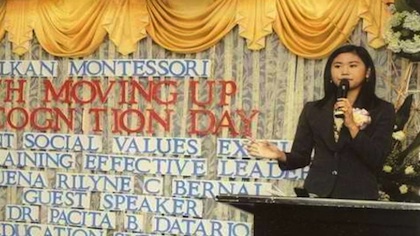SUMMARY
This is AI generated summarization, which may have errors. For context, always refer to the full article.

Halfway through college, I almost gave up on my course – journalism.
I had this irrepressible fear that I might never measure up to its standards. The thought that I will never be good enough for the journalism I learned in school and read in textbooks struck me hard, because I was in love with that brand of journalism.
The kind where the story is always over and above the writer’s person or personality. The one that approximates the truth the best it can in ways that are fair and effective. The one that seeks to inspire social change. The one where public interest is at the heart of it all.
I have always believed that journalism classes, irrespective of how many retakes you’ve had, cannot replicate the newsroom. This is not surprising, considering my long-held skepticism towards institutional learning. Call me superficial, but our mandated school uniform did not help in my appreciation of my university either.
That stance changed, however. I realized albeit belatedly that university education is the best I’ve got at being able to harness opportunities that offer a simulation of real-world journalism. The roller-coaster ride that is my college education has equipped me more than I expected and perhaps more than I will ever consciously admit.
University professors sometimes make grand pronouncements that are hard to forget, like the time my investigative journalism professor told us that our conduct off-duty matters more than anyone else’s, since a journalist’s task is to constantly scrutinize the conduct of others.
It’s not all romantic, of course. Every day, we are warned that we can be “purveyors of scandal” and that ours is a field that can be “an arena of political struggle for the elite.”
Our mentors love retelling how it used to be. There was a time when research did not mean a single click in Google. There was a time when dark rooms went side by side with photographs and when typewriters went side by side with news stories. We have it so easy, they say.
I take it as a challenge whenever I hear something of this sort. We may have it all easy today, but that gives us a great opportunity to achieve more. The birth lottery must have been leaning to my advantage when it placed my birth at a time like this. I think I owe it to the universe to make good use of that advantage.
Truth-telling
Journalism is not a specialized field, I was told at a young age. Take economics, take nursing, take whatever course that will make you indispensable in a company. Anyone can be a writer. Anyone can write.
Apparently, they were right. The challenge is not so much in the writing, but in the approximation of truth.
Filing a single news item takes more than staring at your computer screen and typing a string of words that will pass as usable information. There goes the endless phone calls, the press conferences, the rallies you have to cover to meet someone who fights genuinely for the cause, the incredibly bureaucratic government offices you have to wrestle with to access supposedly public documents, the crowd sourcing and the interviews, more interviews to verify conflicting statements, the research and data gathering, countless letters to offices and public officials, more data gathering, and then the writing. All this for the great grand goal of empowering the public with information.
The people of the newsroom are my heroes. If being one of them means I have to go through hours and hours of lectures in class while wearing an old-fashioned piece of uniform, then so be it.
Pride in journalism education
Today, I take pride in my journalism education more than ever before. We are taught archetypes, theories, and principles in class. We are taught how things are supposed to be.
That we function as watchdogs, condemning lavish lifestyles of public leaders and identifying blunders in their service to society. That we are reform-oriented, constantly challenging the status quo and promoting developmental goals.
That we uncover stories that need to be told, painting a human face to wars and disasters, explaining the gravity of statistics and their impact on grassroots communities, analyzing data vital to the economy, recounting historical lapses when institutions fail to deliver retribution, surveying prevailing sentiments and patterns of behavior, narrating tales of the undue suffering of victims, of the triumphs and bravery of heroes, and of the evil plots and past crimes of villains.
At a time when corporate and political interests seem to have taken control, it pays to be reminded of journalism’s original mandate.
These crucial years I spend as an undergraduate studying the craft is a time for embracing ideals, fully internalizing them to the point of not forgetting. Because when the work starts piling up and the assigned stories keep coming in, we tend to forget why we are here. – Rappler.com
You might like:
- A letter of gratitude to parents who dream with their children
- ‘Why I write’
- The stuff topnotchers are made of
Elsewhere in Rappler:
Add a comment
How does this make you feel?
There are no comments yet. Add your comment to start the conversation.